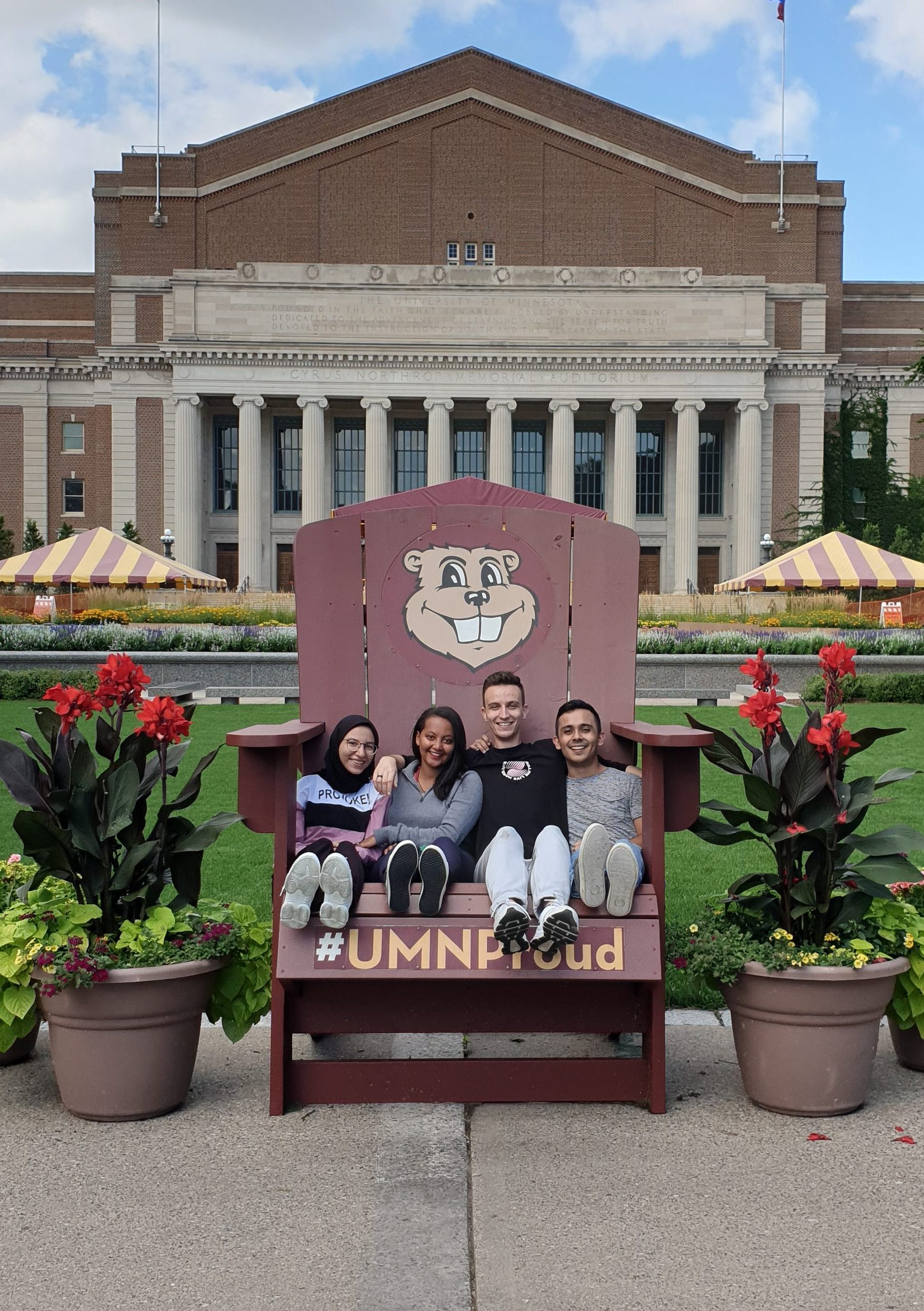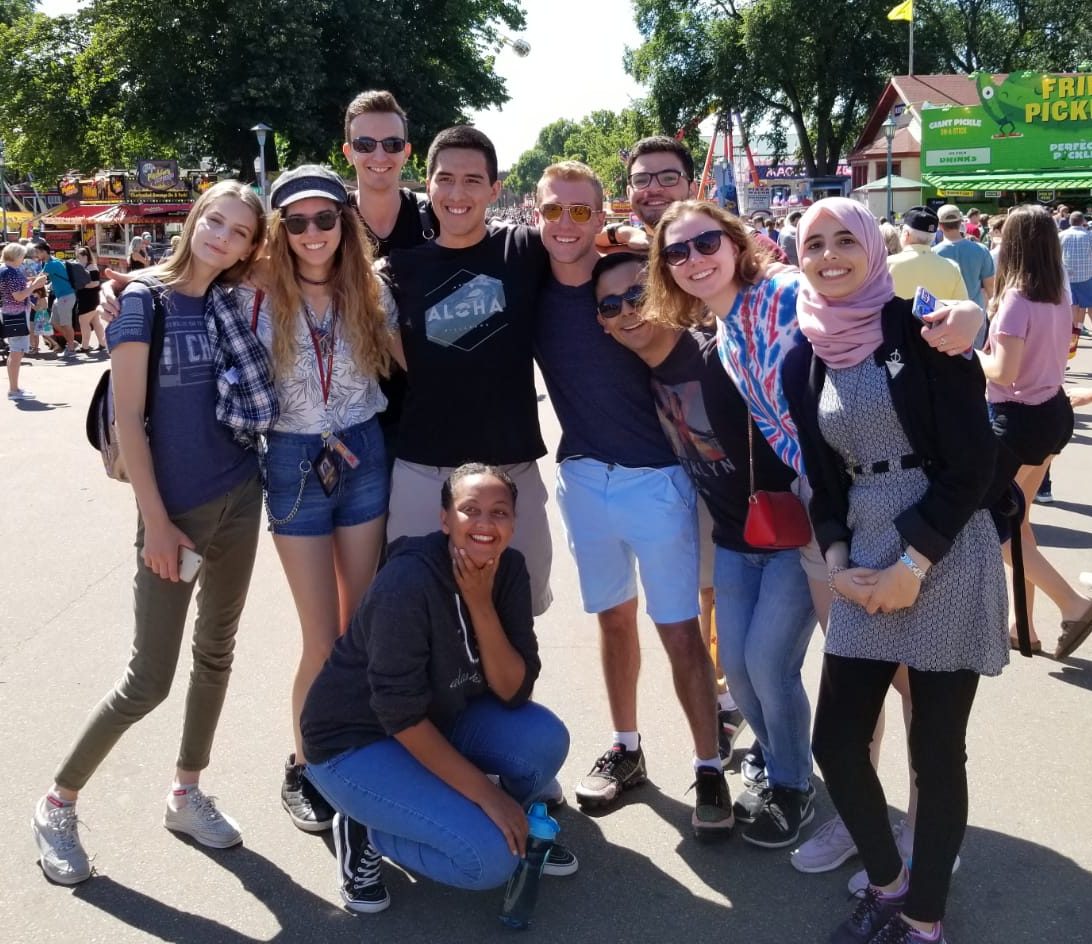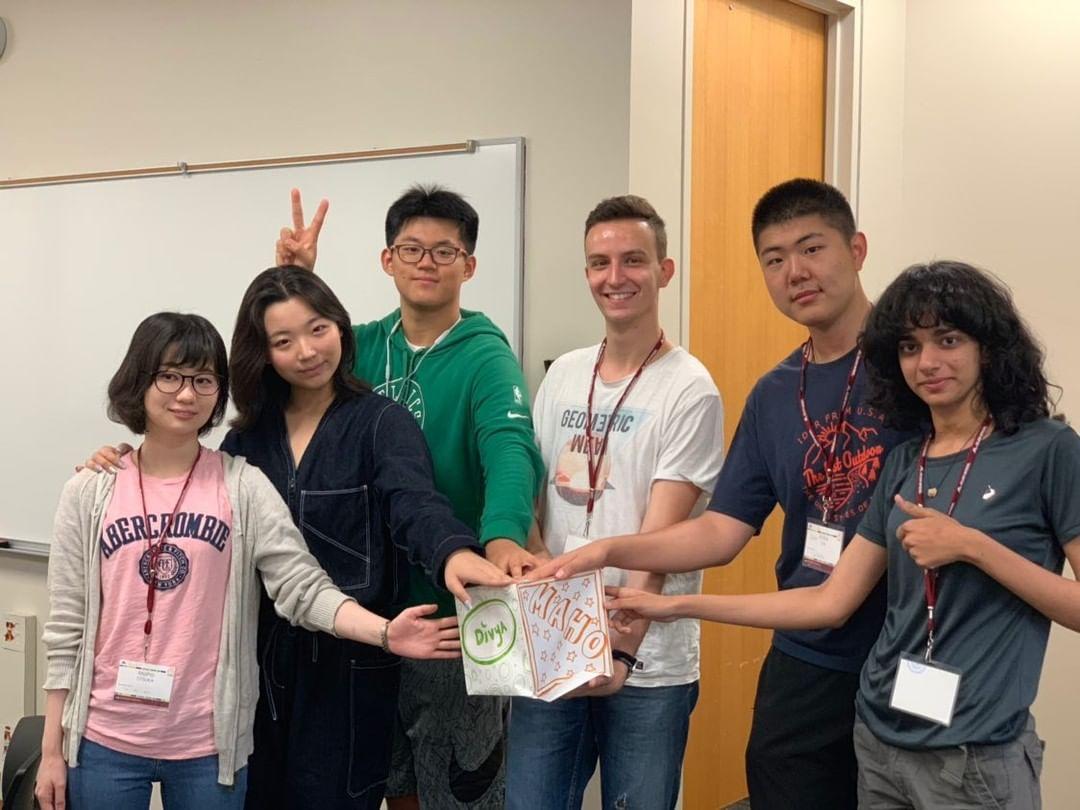Alumni Update: Milos Provci, Serbia
 As I landed in Minnesota, I immediately felt welcomed, and this feeling remained with me for all of my time in the U.S. I was lucky to make friends right away,with a fellow Global UGRAD and one of my best friends, Jeffrey, from Guatemala. On the following day, Jeff and I met the other two Global UGRADs, Mekdelawit, from Ethiopia, and Sara, from Egypt, and toured the campus together. During the course of my first week, I met other wonderful students (both exchange and non-exchange) from all around the world. The people I’d met in those 10 days in America influenced me greatly. My life finally felt like it was falling into place, I was surrounded by friends who understood and supported me, and in a community that respects me.
As I landed in Minnesota, I immediately felt welcomed, and this feeling remained with me for all of my time in the U.S. I was lucky to make friends right away,with a fellow Global UGRAD and one of my best friends, Jeffrey, from Guatemala. On the following day, Jeff and I met the other two Global UGRADs, Mekdelawit, from Ethiopia, and Sara, from Egypt, and toured the campus together. During the course of my first week, I met other wonderful students (both exchange and non-exchange) from all around the world. The people I’d met in those 10 days in America influenced me greatly. My life finally felt like it was falling into place, I was surrounded by friends who understood and supported me, and in a community that respects me.
Soon after, I registered for classes for the semester. With all our courses selected, my friend group eagerly waited for the semester to start. Also, it was time to move into the Pioneer Hall, our home for the next semester, and for some, the whole school year. As my classes began, I soon made friends in my physics and math classes and was generally very happy whenever I had those courses. Before studying in the U.S., I considered myself an introvert and a very private person, but during that whole semester, I don’t think I spent more than 24 hours alone. Every minute of every day was spent with a purpose, either refining myself academically or strengthening the bond with my new family. We went to the movies once per week, occasionally ate out and made it a habit to always study together.

By October, my life started becoming a routine, not in a bad sense, of course – it’s just a part of school life. Everyone needs a routine, after all. I would wake up at 8:30 am, go to class and, by 1 pm, I was free. One thing to note is how short the lectures are compared to those in Serbia. I spent only two hours per day in the classes, and I didn’t have any on Thursdays. Anyway, every time I came back to the dorm, I’d pop by Mekdi’s room, her room was on the same floor as mine (so was Jeff’s, another friends of ours), and right in front of the elevator. So, all of us would just gather into her room whenever exiting the elevator, just to say hi. Then I’d do homework with them. We’d spend the whole day together, studying and hanging out, and occasionally went outside when the weather was nice. We all joked that it’s a miracle that such nerds found each other. I believe that World Learning and other organizations did really well placing us together.
 I didn’t always study and hang out with friends though. Visiting places is also a big part of this program. When I explained it to professors in Serbia, it must’ve sounded strange when I said that traveling U.S. was one of the aspects of the program as well. I owed it not just to myself, but to everyone who helped me go there to see as much of America as I could. I like to think I did this in a very unique way. Locally, I spent time visiting places in Minnesota.
I didn’t always study and hang out with friends though. Visiting places is also a big part of this program. When I explained it to professors in Serbia, it must’ve sounded strange when I said that traveling U.S. was one of the aspects of the program as well. I owed it not just to myself, but to everyone who helped me go there to see as much of America as I could. I like to think I did this in a very unique way. Locally, I spent time visiting places in Minnesota.
In late October, I flew to Chicago to visit my mother’s friend from college. She hosted me in her home, where she lives with her husband and son. To me, the most valuable sight I saw wasn’t downtown Chicago, Lake Michigan or the Bean, it was the suburb she lived in. It’s quite unlike anything I’ve seen before, even differing from suburbs in the UK. What I always want to know about places I visit is how people live there. And that is what I saw in Chicago and, later, in Denver, with my roommate’s family. I stayed with Karen’s family for two days, a short time of course, but long enough to feel the warmth of an American home.
My pre-departure trip to D.C. was a breath of fresh (warm) air after cold Minnesota, so much so that my fellow Minnesotan Global UGRADs and I all undressed to our T-shirts immediately after exiting the airport. We met just under two hundred people in D.C., all exchange students such as ourselves. It was single-handedly the most humbling experience I’ve ever had. My two roommates there were from Haiti and Malawi, respectively, and the stories they told me made me realize how privilege changes everything. Even though I’ve always considered myself tolerant and open-minded, my opinions on race, gender, sexuality, and religion evolved tremendously. I never understood the full scope of these things in lives of people who were affected by discrimination as I did then and there. I remember a sentence that the World Learning facilitator Simon said, to paraphrase: “Take a good look at all the people with you here today, chances are you will never be in a room with so many people of different nationalities, ever again.” And he was painfully right. As I write this now, in Serbia, I realize how much I miss multiculturalism.
Our dorm was closing on December 20, the day of our departure. One by one, people left, and each goodbye was like a punch to the plexus. My flight was the last and everyone had left by then, except for my friend Divya, who stayed with me during my last day there. We went around campus, revisiting all our memories there. The events that had transpired felt as recent as yesterday, and the time between them as short as reading this report takes.
On my flight back, I was still in disbelief that I was leaving an entire life behind me. In that semester I’d lived more than I have my whole life in Serbia. I met handpicked people of great intelligence and amazing spirit, studied the most interesting topics with the very best of students, and opened my mind to new concepts and ways of thinking. I was coming back a much greater man than the one who’d left. And I owe it all first and foremost to this program that deemed I was worthy to participate in it, followed by a country that primarily values tolerance and multiculturalism and, finally, to the people who found themselves in a similar situation to mine and joined forces with me to make the best of it. Their love, support and ambitions are what kept me going there, in good and bad days, and what will continue to drive me for days yet to come.
Milos Provci, Serbia, 2019-20, University of Minnesota – Twin Cities